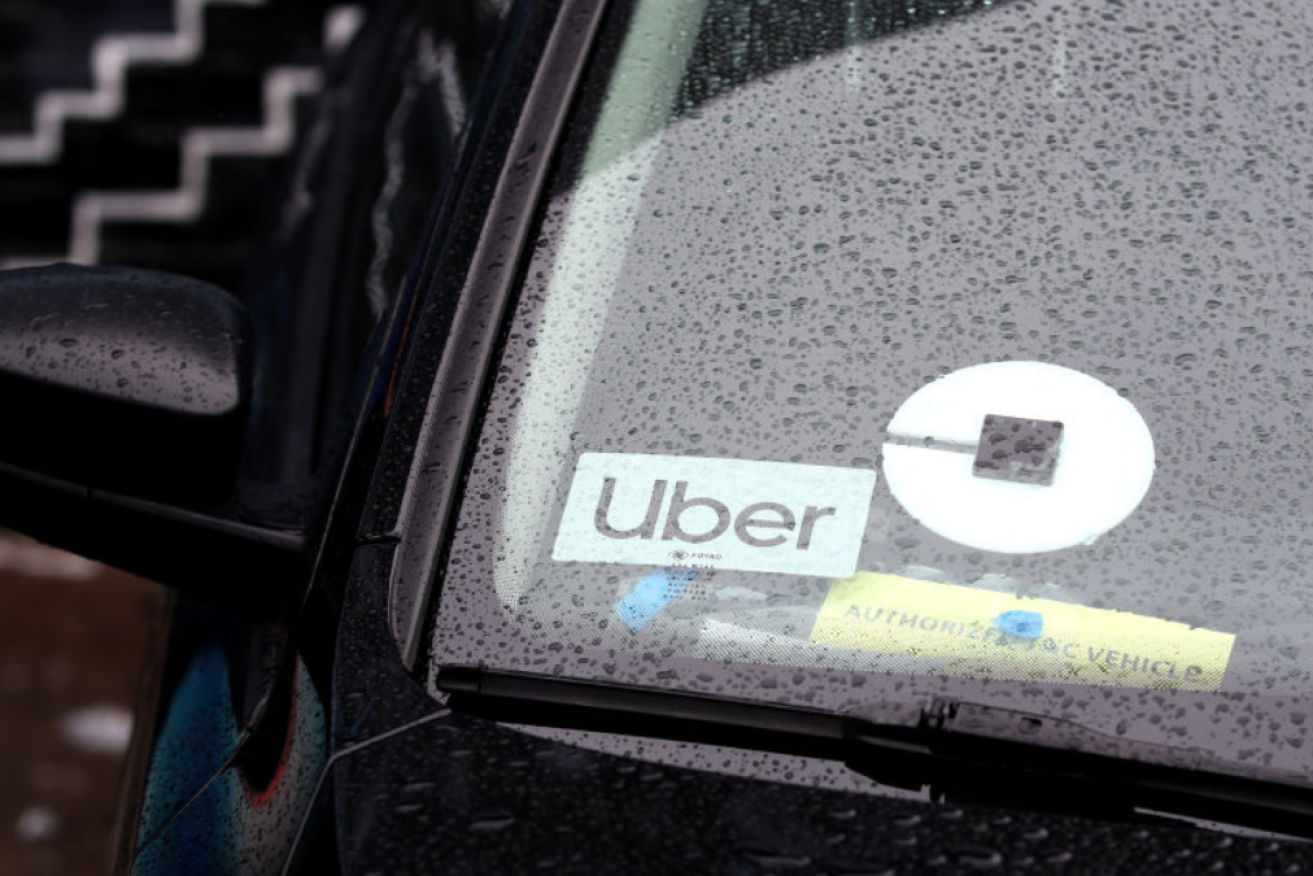Uber delivers a staggering pay ‘admission’


Rideshare giant Uber has been fined $412,000 for sending two million spam emails in a single day. Photo: Getty
Uber may have kicked a stunning own goal this week in submissions to the Senate inquiry on the Closing Loopholes Bill.
Uber argued prices for it customers would go up by 60 per cent for rideshare and a staggering 85 per cent for delivery fees, in its response to proposed amendments to the Fair Work Act that would give the Fair Work Commission (FWC) the power to set minimum pay standards and conditions for Uber drivers and other gig platform workers.
Uber says that its claim is based on modelling that applies award minimum terms and conditions to the work that is currently being performed by rideshare and delivery workers on their platform.
Is this an acknowledgement that the platform’s workers are being paid somewhere between 60 and 85 per cent less than the award standard?
Uber GM for Australia and New Zealand, Dom Taylor, was also reported by the AFR to have said that penalty rates were “an archaic structure”, in support of its submissions.
Archaic? A fair-minded observer might posit that so, too, is the concept of a largely unregulated labour market, or the absence of a minimum wage.
Despite that, Uber states it supports “reform that improves benefits and protections for platform workers while preserving the flexibility they love”.
An Ipsos survey of Uber workers found they would like to protect “the flexibility they desire while also providing access to other minimum standards and benefits”.
Flexibility at a premium
DoorDash, an Uber rival which says that its “mission” is to empower “local economies by creating impact through our three-sided marketplace consisting of Dashers [workers], merchants and customers”, also suggests that flexibility reigns supreme.
In a separate submission, DoorDash backed the importance of flexibility to platform workers. Uber and DoorDash both rely on surveys of workers that they say reveal over 90 per cent of respondents are dependent upon the flexibility that the platforms provide.
Uber and DoorDash are both concerned about the proposed regulations and the impacts on their businesses, with DoorDash saying, “It does not benefit our three-sided marketplace to make Dashing unattractive”, which probably goes without saying.
Where to next?
I have written about the need for reform to gig work standards before.
The current proposal includes giving power to the FWC to consider a range of factors and make orders, called minimum standards orders, that will apply to gig workers.

Gig economy workers have long been largely unregulated when it comes to pay. Photo: AAP
This is a move that Uber is also cautious of, arguing that “the FWC is a body with over 100 years of experience dealing with employment and no experience dealing with platforms and platform workers”.
And they’re not all wrong. The FWC does have limited experience dealing with platform workers, mainly because the platforms have spent the past 10 years avoiding the application of employment standards regulated by the FWC.
But to suggest that somehow undermines the FWC’s standing is ill conceived.
There is no other regulatory body within the Australian employment framework that would be better placed to deal with the unique circumstances of workers in the gig economy.
FWC is a specialised tribunal that deals exclusively with workplace matters across the landscape, and with its predecessor bodies has done so for around 100 years.
Sooner or later a change must come.
Regulation evolution
Revolutionary, disrupting apps that connect a “three-sided marketplace”, are essentially providing the same function and service that a pizza delivery person would have 15 years ago. Albeit that they deliver for multiple vendors, co-ordinated by the app.
In truth, the services provided by the apps have, fundamentally, existed for all of living memory.
A key difference is that the technology that enables the apps and the way in which the services are provided has been able to roam freely on the open and unregulated plain it has established for itself over the past 10 years or so. Governments globally have failed to keep up.
Because while the apps may be revolutionary, regulation on the other hand tends to be evolutionary, often only responding to the change in environment reactively and gradually. Which is a logical procession. There usually must be something to regulate before you can have regulation of it.
Workplace regulation has a long history of reactive development.
A UK example which dates to the late 18th century was the introduction of the Health and Morales Apprentices Act 1802. That act was introduced to regulate the work of pauper children working in cotton mills by limiting the hours they could work to 12 hours per day and providing other conditions like ventilation.
While the developed world has certainly come a long way since then, there are many other examples of regulation responding to a problem well after it has presented.
Uber says that it is a business which can deliver almost anything.
Hopefully, that will soon include minimum wages and conditions for some of our most vulnerable workers.
Scott Riches is a former union official with the Electrical Trades Union Victorian branch, and a practising employment lawyer. He is also a volunteer in the employment clinic at the Fitzroy Legal Service.








